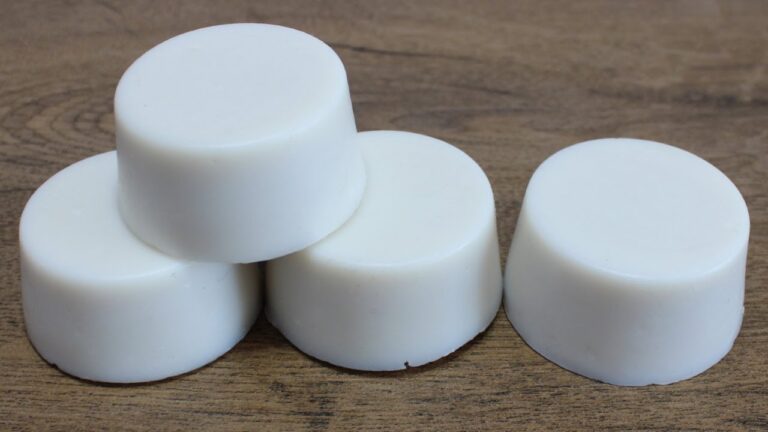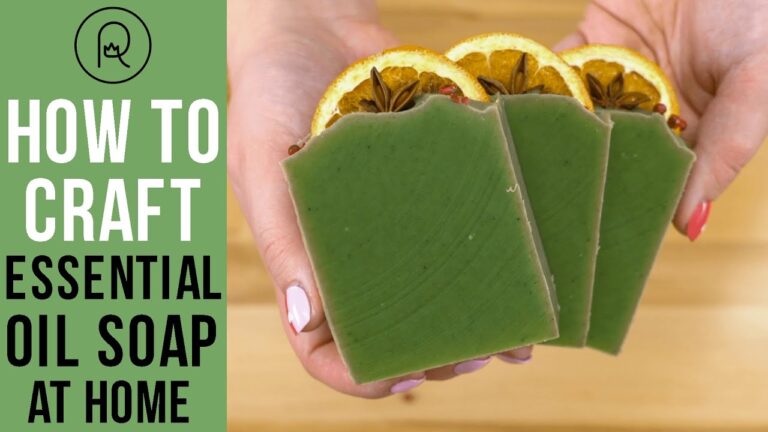Looking to incorporate more natural products into your skincare routine? Look no further than these plant-based soap recipes! Say goodbye to harsh chemicals and artificial fragrances, and hello to gentle, nourishing ingredients straight from nature. From soothing lavender to invigorating citrus, these DIY recipes are not only good for your skin, but also the environment. Get ready to elevate your self-care routine with these clean and eco-friendly soap options.
What are some common ingredients in plant-based soap recipes?
Plant-based soap recipes often include ingredients such as coconut oil, olive oil, shea butter, and essential oils. These natural ingredients not only provide moisturizing properties but also offer cleansing and nourishing benefits for the skin. Coconut oil is known for its cleansing abilities, while olive oil and shea butter help to hydrate and soften the skin. Essential oils are added for their aromatic qualities and potential therapeutic benefits. Together, these ingredients create a gentle and effective plant-based soap that is both luxurious and eco-friendly.
How do I make plant-based soap at home?
To make plant-based soap at home, start by gathering all the necessary ingredients such as plant-based oils like coconut, olive, or almond oil, essential oils for fragrance, and lye. Next, carefully measure out the oils and mix them together over low heat until they reach a certain temperature. In a separate container, mix the lye with water and allow it to cool. Once both mixtures are around the same temperature, slowly combine them while stirring continuously. Add in any essential oils for fragrance, pour the mixture into molds, and allow it to set for 24 hours before cutting into bars. With a little practice and patience, you can create your own plant-based soap right in your own kitchen.
Are there any specific plant-based oils that work best for soap making?
When it comes to soap making, certain plant-based oils stand out for their nourishing properties and ability to create a luxurious lather. Coconut oil is a popular choice for its cleansing and moisturizing benefits, while olive oil adds a creamy texture and conditioning properties. Additionally, palm oil contributes to a long-lasting bar of soap with a stable lather. These oils, along with others like shea butter and avocado oil, can be carefully blended to create a soap that is both gentle on the skin and effective in cleansing.
In conclusion, while there are many plant-based oils that can be used in soap making, it ultimately depends on the desired properties of the soap being created. Experimenting with different combinations of oils can lead to unique and beneficial results, tailored to specific skin types and preferences. Whether aiming for a rich lather, moisturizing properties, or a long-lasting bar, selecting the right plant-based oils is key to creating a high-quality soap that is both effective and luxurious.
DIY Plant-Powered Cleansing Bar Recipes
Looking to incorporate more natural ingredients into your skincare routine? Try these DIY plant-powered cleansing bar recipes for a refreshing and nourishing cleanse. Made with simple ingredients that you can find in your kitchen, these bars are gentle on the skin and environmentally friendly.
Start off with a soothing lavender and oatmeal cleansing bar, perfect for calming irritated skin and promoting relaxation. The combination of lavender essential oil and ground oatmeal will leave your skin feeling soft and refreshed. Simply mix together melted shea butter, coconut oil, lavender essential oil, and ground oatmeal, pour into a mold, and let it set.
For a refreshing and invigorating cleanse, try a peppermint and eucalyptus cleansing bar. Peppermint oil has a cooling effect on the skin, while eucalyptus oil has antibacterial properties. Combine these oils with coconut oil, shea butter, and a touch of green clay for a cleansing bar that will leave your skin feeling clean and revitalized. These plant-powered cleansing bars are a great way to nourish your skin while reducing your environmental impact. Give them a try and enjoy the benefits of natural ingredients in your skincare routine.
Simple Steps to Natural Soap Making
Are you ready to take the plunge into natural soap making? With just a few simple steps, you can create your own luxurious, chemical-free soaps right in the comfort of your own home. No need for complicated equipment or hard-to-find ingredients – all you need are some basic supplies and a little bit of creativity. With our easy-to-follow guide, you’ll be on your way to crafting beautiful, all-natural soaps in no time.
In just a few simple steps, you can transform everyday ingredients into a luxurious and nourishing bar of soap. Our step-by-step instructions will guide you through the process, from choosing the right oils and additives to mastering the art of scent and color. Whether you’re a seasoned soap maker or a beginner looking to try something new, our simple and straightforward approach to natural soap making will have you creating your own unique blends in no time. Say goodbye to harsh chemicals and hello to the natural beauty of homemade soap.
Overall, incorporating plant-based soap recipes into your skincare routine is not only beneficial for your skin but also for the environment. By using natural ingredients like essential oils, herbs, and fruits, you can create gentle and nourishing soaps that are free from harsh chemicals. Whether you are looking to reduce your carbon footprint or simply want to treat your skin to the goodness of nature, plant-based soap recipes are a great way to pamper yourself while staying eco-friendly. So why not give it a try and experience the wonders of plant-based skincare firsthand?



